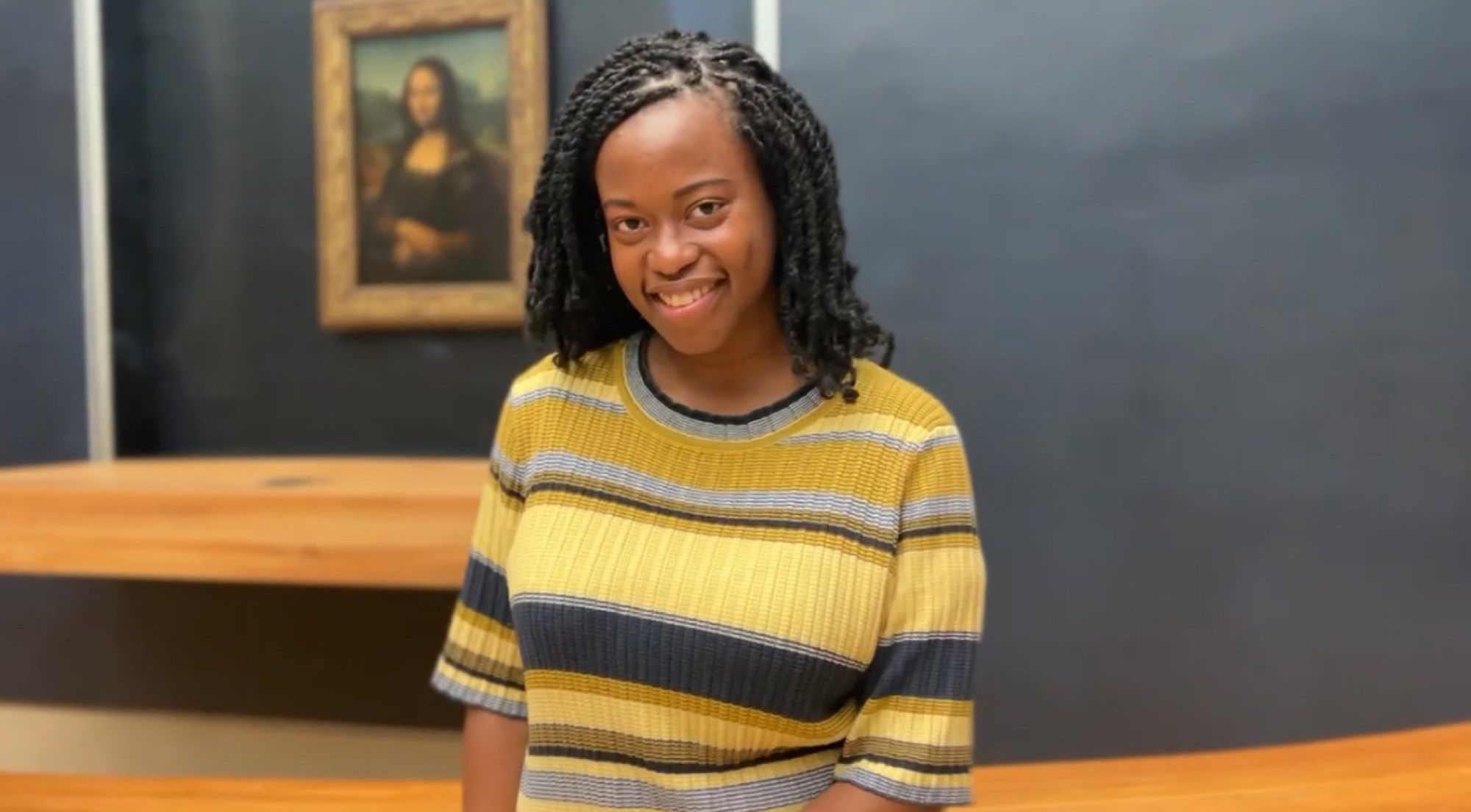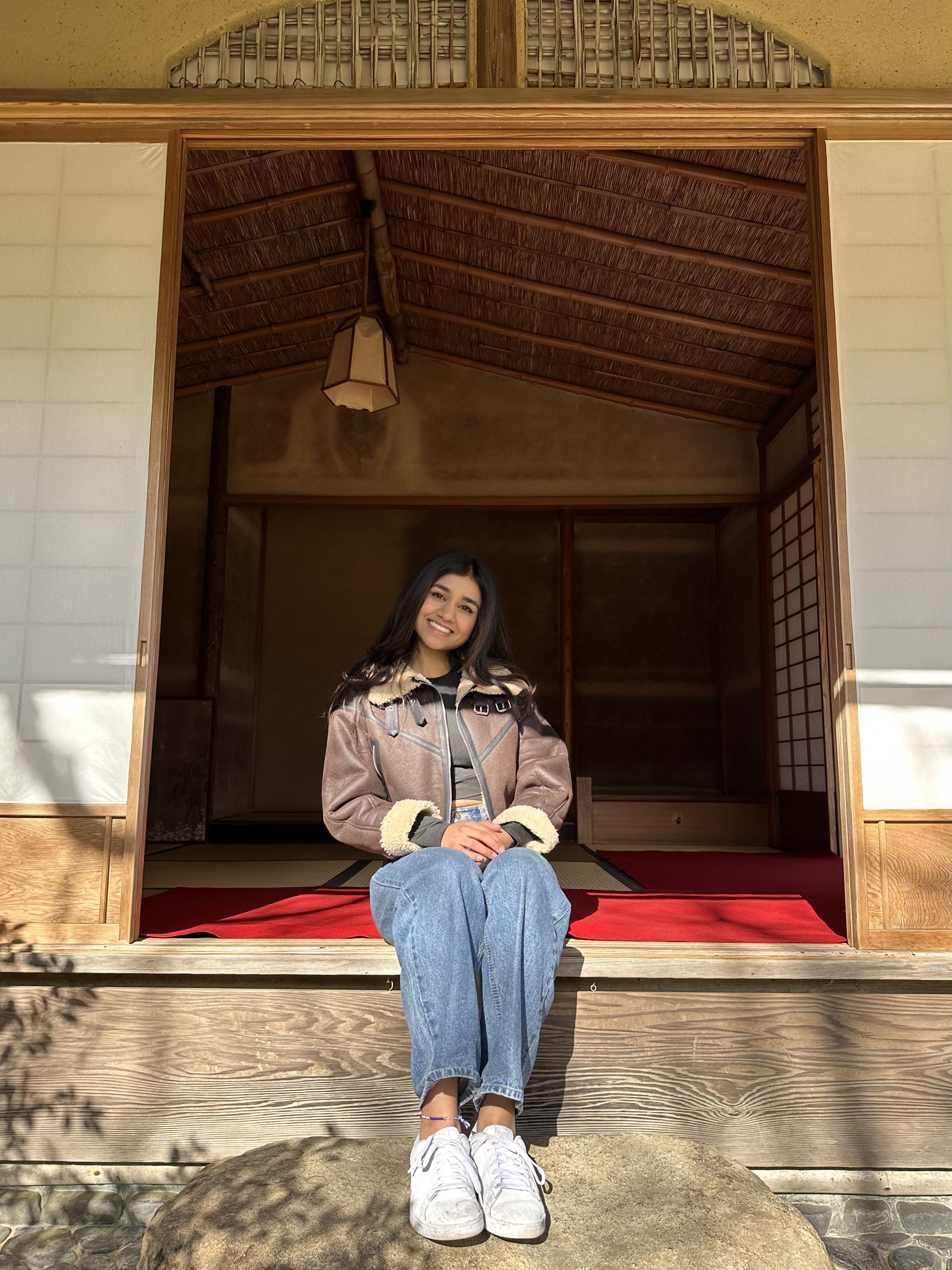‘The American dream is to leave America.’ The US TikTokers revealing what life is like abroad
11 min readCNN
—
A month’s paid vacation time. Wine at lunchtime on a Tuesday. No tipping needed.
In Kacie Rose Burns’ most popular video, the influencer runs through some of the biggest culture shocks she’s experienced since upping sticks from the US to Italy.
Burns’ TikTok – viewed 19.8 million times – is flooded with comments ranging from disbelief, envy and approval.
There’s one comment – liked 34,800 times – that maybe sums it all up:
“I think the American dream is to leave America.”
‘That American girl living in Italy’
Burns’ social media accounts chronicle her experiences as, according to her TikTok bio, “that American girl living in Italy.” She details cultural differences, offers guides to Italian cities and speaks directly to the camera about her experiences.
The 30-year-old started posting on TikTok in 2021 when she moved to Florence with her Italian boyfriend, who she met on vacation several years earlier.
In early 2021, international travel was off the table. Burns’ videos quickly gained traction thanks to her mix of escapist content, wish fulfillment fantasy and funny-yet-insightful takes on the realities of moving abroad.
Cut to today and Burns has 1 million TikTok followers. Fans approach her on the street and act like they know her. She’s leveraged her success into a brand, complete with ebooks and group tours. Chronicling her life in Italy is now her full time job.
It’s a career move that Burns, a former New York dancer, says was entirely accidental. The success has taken her by surprise.
But Burns isn’t alone. In recent years – as TikTok has ballooned in popularity and Instagram has embraced short-form video content in the shape of Instagram Reels – the American influencer abroad has become an omnipresent figure.
No matter your algorithm, if you’re active on these platforms it’s likely you’ve seen a video or two along these lines. Maybe an influencer wandering around a UK grocery store, commenting on how bizarre it is that British stores don’t store eggs in the refrigerator, or someone chronicling their attempts to learn French while in situ in Paris, or showing the incredible views from their red-roofed Lisbon apartment.
For American social media user Elizabeth Staub, 31, watching TikTokers who’ve moved abroad is appealing partly because their content feels “like an easy daydream” or “escape.”
But it’s a fantasy that’s “also kind of attainable,” as Staub puts it to CNN Travel. These people might seem to have a day-to-day that’s straight out of a Netflix romantic comedy, but they’re real people. And for Staub, it’s this reality that makes it easy to insert herself in their shoes – at least for the few minutes it takes to watch one of their videos.
“I really enjoy seeing the differences between our country and wherever these influencers are, and romanticizing what it would be like to live there,” says Staub.
“I follow people who live in places I’d want to live,” agrees Boston-based social media user Erin Conry, 26. It feels like a dopamine hit, Conry tells CNN Travel, every time she sees “these aesthetically pleasing travel videos.”
These Americans abroad seem to be living the dream and thanks to their streams of content, TikTok users can follow along and live vicariously through them.
The viral appeal of the ‘little things’

Many of the most popular videos from US content creators abroad hinge on the little details.
Take Quentin Pettiford’s social media presence. Pettiford, 24, moved from the US to Norway in 2021. Like Burns, he emigrated after falling in love with a European, and like Burns, people love hearing about his transatlantic love story – but if his TikTok stats are anything to go by, they’d rather hear his thoughts on the differences between Norwegian and American grocery stores.
Pettiford gets it. The first time he walked the aisles of a Norwegian grocery store, he was entranced. For his Norwegian partner, the experience was mundane – boring, even – but for Pettiford, the store was a treasure trove of intriguing cultural differences.
He was baffled by the bread slicers, something he’d never seen in an American grocery store. He soon learned that when you leave certain stores in Norway, you have to scan your receipt in order to open the doors.
“Everything about the grocery stores here in Norway is just so different,” Pettiford tells CNN Travel.

Pettiford immediately started filming clips and posting on his TikTok account. “I knew that if the right people saw it, they’d be interested and it would go viral,” he says.
Sure enough, one day Pettiford opened the TikTok app to thousands of comments, views and follows.
“It got two million views in a couple of weeks,” says Pettiford of his first viral video. “I was like, ‘You know what, I’m not going to let this opportunity slip.”
Pettiford dove head on into content creation. Today, he intersperses funny commentary on cultural differences with glimpses into his day-to-day family life with his Norwegian wife and their young daughter.
His followers seem to enjoy that family content, says Pettiford, but his most popular video isn’t particularly personal at all – it’s “me talking about how Americans use Fahrenheit, and how the rest of the world uses Celsius.”
“That got, like, 8 million views,” says Pettiford, sounding disbelieving. “Little things like that, people go crazy for. So I just kind of sit back, reflect on what’s different, write it in my notes and then talk about it and see if it goes viral.”
The American abroad in pop culture

Burns and Pettiford both started posting during the pandemic – partly because they found themselves with more time on their hands and partly because that’s just when they happened to move abroad.
But twentysomething Fatima, an American content creator who runs the TikTok @itsthequeenfatima, had lived in Paris for several years before she started posting publicly about her life in early 2021.
Like former dancer Burns, Fatima worked in the performing arts industry pre-2020 and found herself turning to social media as a “different way to be creative” when Covid hit.
Fatima, who has requested her last name not be included in this article for personal reasons, was also inspired to start posting publicly in the wake of the Netflix hit “Emily in Paris.” The much talked about TV show tracks a fictional American social media influencer who moves to a version of Paris that bears little resemblance to the city’s reality, but which quickly enamored locked-down-viewers when the show landed on Netflix in late 2020.
Fatima watched – and enjoyed – “Emily in Paris.” But seeing the show’s success also prompted her desire to show a more realistic view of the “American in Paris” tale. It’s a tale, Fatima acknowledges, that is, if not as old as time, certainly pretty old – she recalls watching the 2014 Broadway musical “An American in Paris,” based on the 1950s movie, the week before she moved to France.
The pop culture trope of an American moving to Europe and living a charmed life also extends beyond Paris and predates the 21st century – think 1954’s Rome-set “Three Coins in the Fountain.”
For millennial Fatima, it was the 2003 “Lizzie McGuire Movie” – in which American teen Lizzie takes a trip to Italy and is accidentally mistaken for a pop star – that first had her dreaming about moving to Europe.
“That movie is very iconic for me, very important,” says Fatima. “When I finally went to Italy, and I was in front of the Trevi Fountain, I couldn’t stop talking about it. And I kid you not – like five minutes into like me being in that location, there was another American talking about the same movie.”

Fatima points out that most of these movies and TV shows depict “White women of a certain socio-economic background moving to Europe to pursue their ‘Eat, Pray, Love lifestyle.’”
Fatima realized her TikTok was an opportunity to broaden that overriding pop culture narrative.
“To be a Black American in Paris, it really does inform how I go about my life in this country,” she says.
In one of the pinned videos on Fatima’s TikTok, she’s shown walking around picturesque Parisian streets, speaking directly to the camera and promising followers “range, details, information, tips, tricks, silly stories of my times past, and TBH just my reality of living in Paris.”
This video directly engages with the pop culture tropes of Americans living abroad. For one, there’s a direct reference to fictional “Emily” – Fatima calls herself “Fatima in Paris” both in the video and her TikTok bio. And the video is soundtracked to the “Sex and the City” theme music – nodding to the moment in that series when fictional heroine Carrie Bradshaw decided to start over in Paris.
“My content does have an aspect of escapism, and that’s by design,” says Fatima. “I try to make content that is fun and engaging for me, and also fun and engaging for the audience that might want to consume it.”
For Fatima, social media has also turned out to be an alternative revenue stream – although she doesn’t make a full time living off her content, she does make a profit.
“To put things into perspective, I have made enough money (post taxes) to pay two months worth of rent including utilities in the calendar year of 2023,” she tells CNN Travel.
Kacie Rose Burns also makes money from her social media content via occasional branded content, but she says social media only became a full time career once she began running group tours in Italy and started her business.
Burns says she also avoids any branded content she doesn’t think will resonate with her followers. For both Burns and Fatima, keeping their content as “real” as possible is important to them.
For example, while Fatima’s content always has an appealing touch of glamor, she stresses to CNN that “living in France, living in Paris, is not this idealistic perfect utopia that a lot of people set it out to be”
“I’m fully aware of that and fully cognizant of that. And every now and then I do talk about that on my platforms. I talk about the realities of living in this country,” she says.
Burns – who, like Fatima, is well aware of the pop culture tropes she’s playing with – also says she tries to strike that equilibrium in her content.
“It’s healthy to romanticize your life so that you find beauty in it,” Burns says. “But I also think it’s important, at the same time, to talk about the hard parts too, because life in Italy is not like ‘Lizzie McGuire.’ It does have its pain points. It’s not like ‘Under the Tuscan Sun.’ It’s not like ‘Eat, Pray, Love.’ There are definite, hard challenges to overcome. And there are a lot of things such as homesickness, that will never fully go away.”
Beyond Europe

While a lot of popular social media accounts chart the adventures of Americans in Europe, there are accounts depicting “fish out of water” adventures across the globe. Ananya Donapati’s TikToks, for example, chronicles her life as an American in Japan.
For the 23-year-old Californian, moving to Japan was the culmination of a dream that started when she discovered manga comics and started learning Japanese in her early teens.
When the pandemic hit, Donapati almost cast the dream aside, figuring it was never going to be possible. But then the founder of a Japanese fintech startup found Donapati’s popular Twitter account and reached out, offering her a marketing job.
Donapati left the US for Tokyo earlier this year. Although she was big on Twitter, now called X, it didn’t occur to Donapati to create TikToks about her new life until she started seeing other Americans doing the same.
Now Donapati posts regular dispatches, funny observations and guides to Tokyo on her account @hiananyaa.
The goal, says Donapati, is “to share what Japan has to offer, through the beauty that I see through my eyes, through my content.”

Donapati had no qualms about filming herself and her experiences, she’s Gen Z and grew up watching YouTubers. To her, the whole thing seemed “kind of natural.”
“I’ve always wanted to create content,” says Donapati “And I feel like a lot of people my age tend to have that desire.”
Donapati enjoys the creativity that comes with the platform’s limitations – videos have to be short and snappy to catch the attention of a scrolling, time poor social media user who wants to “see something new, wants to be entertained,” as Donapati puts it.
“So the more that you’re yourself and creative, I think you really get a lot of eyes on you, and a lot of support as well.”
Donapati still enjoys watching content created by other Americans in Japan. She finds comfort in seeing some of her experiences reflected back at her, and also finds these videos helpful as she continues to navigate life abroad.
“It’s extremely important to rely on each other, get advice,” she says. “And I think the content creation that everyone’s doing is kind of an extension of that.”
Donapati also enjoys watching American content creators who post about their life elsewhere in the world.
For Donapati, the appeal is that it’s “very real.”
“I really like seeing, let’s say, someone in Europe and their life living there,” she says. “I definitely watch videos like that, it’s great, because I feel like I’m there without having to be there.”
Americans abroad
It’s not only American content creators who post about their experiences abroad on social media. Donapati also follows Japanese content creators living in the US, while Fatima likes reliving her New York years via content created by Europeans who’ve relocated to the US.
But the proliferation of Americans posting about their experiences abroad suggests it’s a particularly popular trend in the US.
US social media user Elizabeth Staub suggests glimpses of life abroad grow ever more appealing to Americans “as our country becomes a mess with regards to healthcare, affordable living and lack of third spaces in our community.”
Burns suggests it’s also because the difficulties associated with international travel in the US didn’t end when pandemic travel restrictions were lifted.
“We don’t have federal paid time off, people can’t take time off work, flying is impossible, it costs thousands of dollars to take a flight to Europe – it’s really expensive,” she says. “It’s just not a reality for a lot of people.”
There’s a stereotype, suggests Burns, that Americans aren’t interested in traveling abroad. But many people, especially younger Americans, “want so badly to travel, but maybe they don’t necessarily have the means to do it.”
“So they travel through their phone,” she says. “It’s easy to find Americans traveling abroad [on TikTok] and then they’re able to experience it through somebody that has a similar background.”
Her words are echoed by social media user Erin Conry.
“They’re living my dream,” she says of the Americans abroad she follows. The content she loves is informative and insightful, but overall just a “great escape.”
“It’s cool to see that people have the confidence to actually live out that kind of life.”



